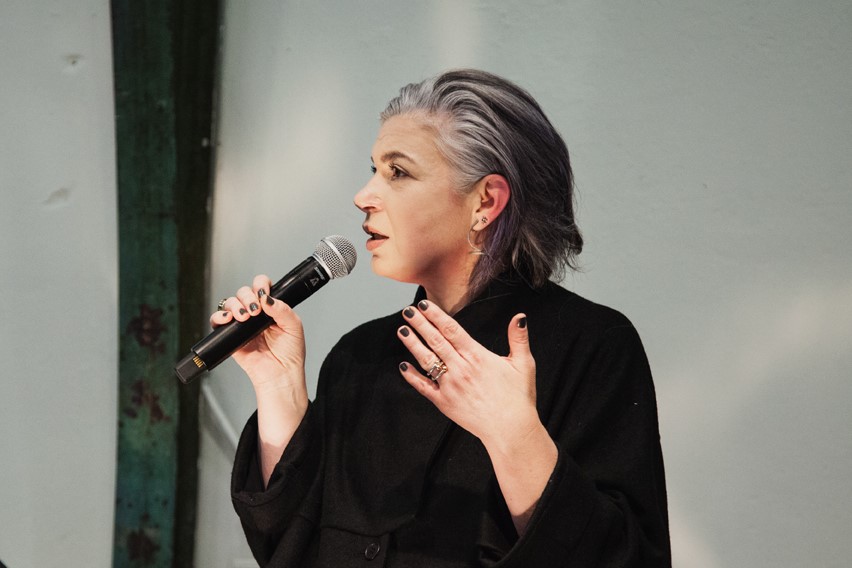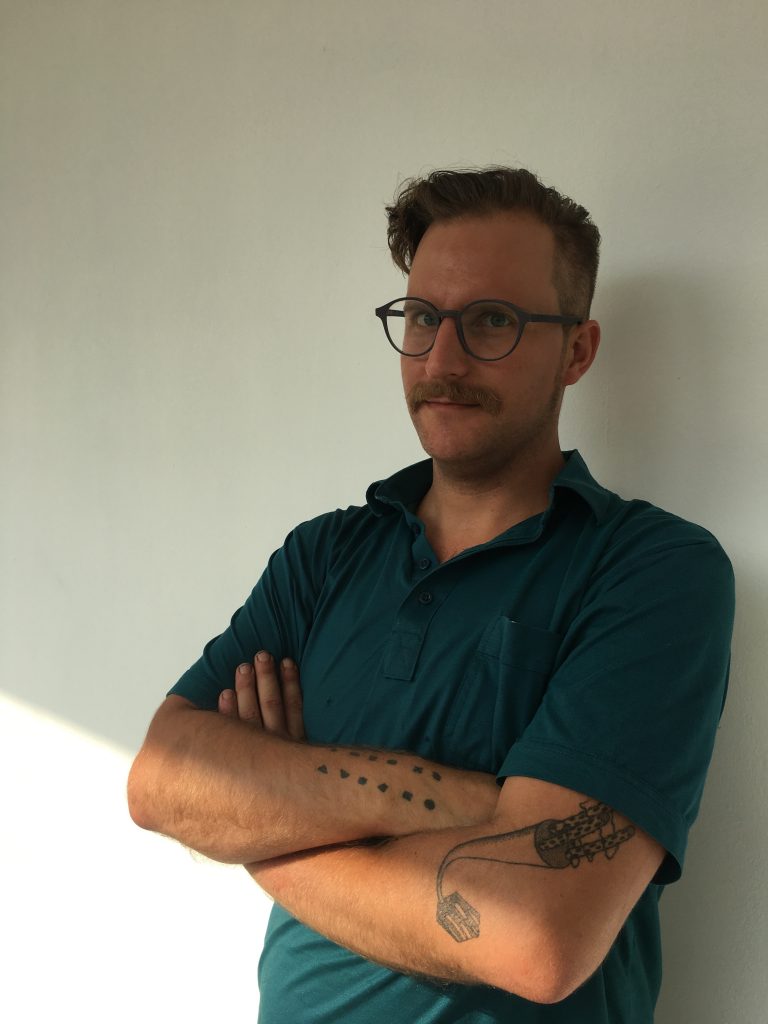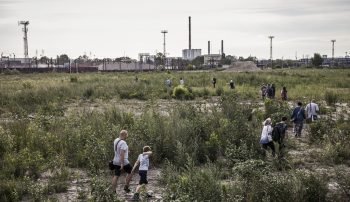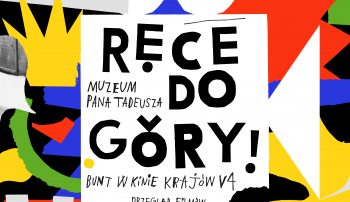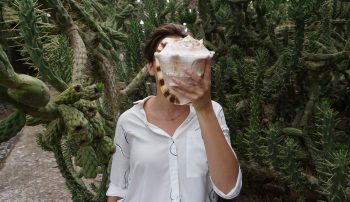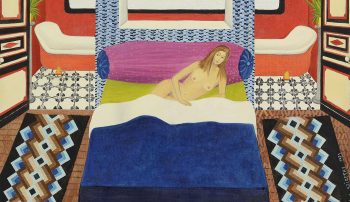Dialogue #4
Maria Hlavajova & Post Brothers
- 1st December, 6 p.m. (Tuesday)
- Event will be held online on Facebook Muzeum Pana Tadeusza in two languages: English and Polish
On Tuesday 1 December at 6 p.m., the Pan Tadeusz Museum invites you for a presentation by Maria Hlavajova, the final event in a series of dialogues with Post Brothers.
Committed to the notion of art as a public sphere and a political space, BAK addresses the social, ideological, and environmental urgencies of the present by combining public programming and exhibition-making with research, learning, and talent development, bringing together disparate communities to imagine and enact transformative ways of ‘being together otherwise’.
In this event, Hlavajova will reflect on the state of the public sphere at a time where the pandemic, border regimes, state violence, precarious economics, and political repression are threatening our communities and producing barriers to collective action, and will share a number of politically-driven experiments with and through art that seek to confront these pressing conditions.
In conversation with Post Brothers, Hlavajova will also speak about the need to rethink the relations between the ‘local’ and ‘global’ outside nationalist or neoliberal capitalist frameworks and will consider strategies for ‘non-fascist living’ at various scales as a response to the dramatic resurfacing and normalization of historical and contemporary fascisms in our present.
As part of the film program ‘Hands up!’ Rebellion in V4 cinema the Pan Tadeusz Museum presents a series of public dialogues addressing the precarious social, ecological, and political conditions of community and cultural production today.
Curatorial assistance: Ewa Tatar
Born in 1971 in Liptovský Mikuláš. Is founding General and Artistic Director of BAK, basis voor actuele kunst, Utrecht, since 2000. In 2008–2016 she was Research and Artistic Director of FORMER WEST, which she initiated and developed as an internationally collaborative research, education, publication, and exhibition project, culminating with the publication Former West: Art and the Contemporary After 1989 (co-edited with Simon Sheikh (BAK & MIT Press, 2017). Hlavajova has instigated and (co-)organized numerous projects at BAK and beyond, including the series ‘Propositions for Non-Fascist Living’ (2017–ongoing), ‘Future Vocabularies’ (2014–2017), ‘New World Academy’ (with artist Jonas Staal, 2013–2016), among many other international research projects. In 2011, Hlavajova organized the Roma Pavilion titled ‘Call the Witness’ in the context of the 54th Venice Biennale, Venice and in 2007 she curated the Dutch Pavilion ‘Citizens and Subjects’ at the 52nd Venice Biennale, Venice. In 2000, Hlavajova co-curated Manifesta 3 in Ljubljana, titled ‘Borderline Syndrome: Energies of Defense’. In addition, Hlavajova is co-founder (with Kathrin Rhomberg) of the tranzit network, a foundation that supports exchange and contemporary art practices in Austria, Czech Republic, Hungary, and Slovakia. Previously, she was a faculty member at the Center for Curatorial Studies, Bard College, Annandale-on-Hudson, NY (1998–2002), and director of the Soros Center for Contemporary Arts in Bratislava (1994–1999).
Born in 1984 in Los Angeles. Is a critical enterprise that includes Matthew Post, an enthusiast, word processor, and curator often engaged in artist-centered projects and collaborations, or occupying the secondary information surrounding cultural production. Post completed his BFA at the Emily Carr Institute of Art and Design in Vancouver, Canada (2006), and an MA in Curatorial Practices at California College of Arts in San Francisco, California (2009). From 2016 through 2019, Post Brothers was the curator at Kunstverein München in Munich, Germany, and has curated exhibitions and presented projects across the world. His essays and articles have been published in numerous magazines and journals, as well as in a litany of artist publications and exhibition catalogues. Post Brothers also regularly participates in exhibitions with text-based and performative contributions, and lectures and teaches seminars throughout Europe. He lives in Kolonia Koplany, a small village in Eastern Poland.
Media partners:
Honourable patronat:
- Hungarian vice-consulate in Wrocław
The project is co-financed by the Governments of Czechia, Hungary, Poland and Slovakia through Visegrad Grants from International Visegrad Fund. The mission of the fund is to advance ideas for sustainable regional cooperation in Central Europe.

